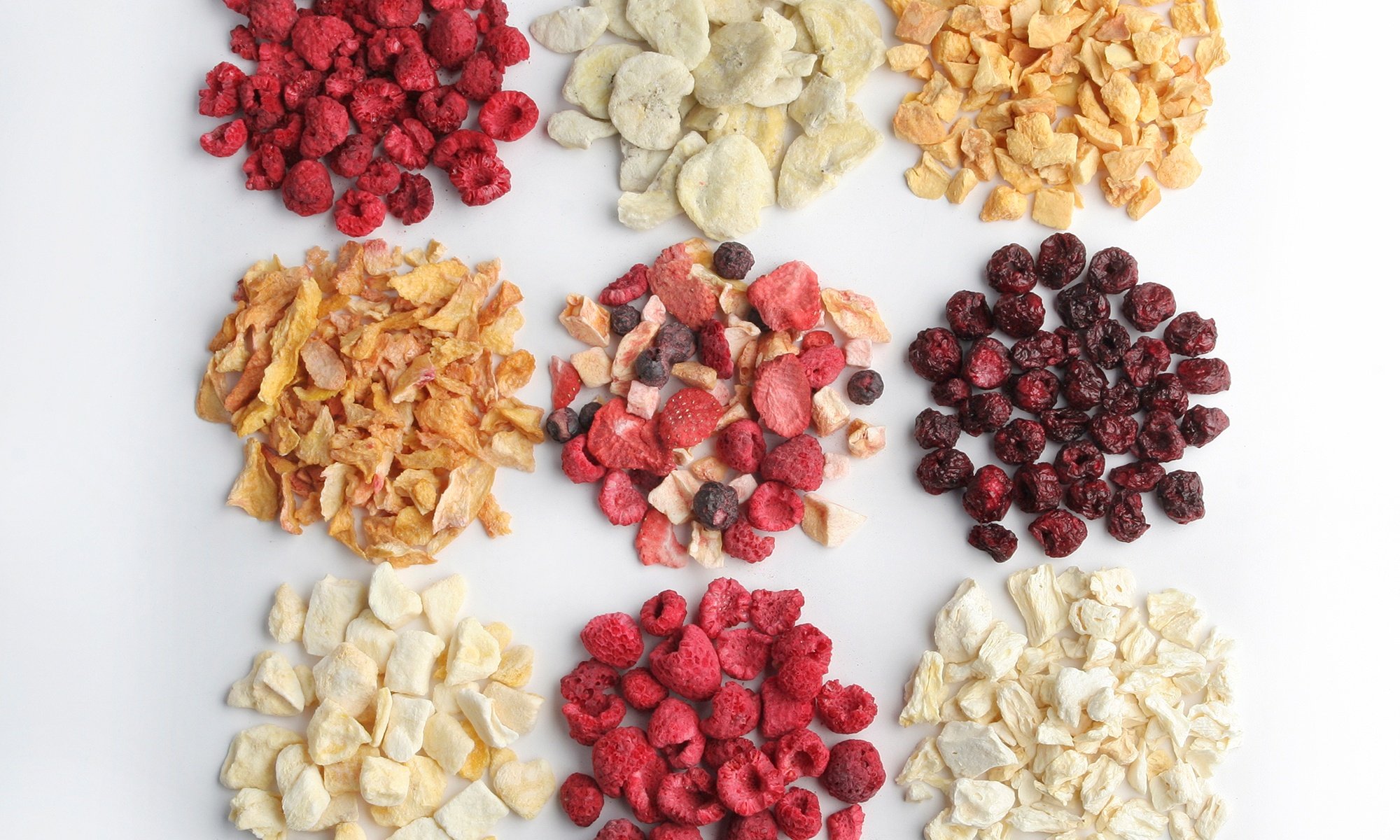This question depends heavily on how one defines nutritional value. If you mean specifically the inorganic mineral content, then the answer is flatly yes, freeze-dried fruits have the same inorganic mineral content as fresh fruits. On the other hand if you are more interested in the content of various organic compounds in the fruits, such as organic vitamins, antioxidants, or sugars, the answer becomes slightly more complex.
The freeze-drying process simply removes water from the tissue, so it should have no direct impact on the either the inorganic or organic components at the moment of removal. The process sort of locks in what is there by removing the water, which may have otherwise fostered an environment in which degradation of the organic compounds would have been more favored. However, it is also important to note that many nutritionally-relevant compounds continue to be synthesized in fruit throughout the ripening process, and freeze-drying would also put a halt to that.
I think most people probably do not know how freeze-drying actually works, so here is a quick overview: Fruit samples are frozen to some temperature well below the freezing point of water, and are then placed under a high vacuum. We are all familiar with the melting and boiling points of water, but what we often fail to appreciate is that these points are also dependent on pressure; 0°C and 100°C are the respective melting and boiling points for water only at 1 atm. If we increase or decrease the pressure, those points change. For example, this is why boiled foods often include "high altitude instructions", which will say something along the lines of "boil 4 minutes longer." Why? At higher altitudes there is lower atmospheric pressure, meaning the water boils at a lower temperature, which means you need to cook your food longer to compensate. Back to freeze-drying: in a high enough vacuum (i.e. low enough pressure) solid frozen water will actually be unable to melt into the liquid phase, but will instead sublimate directly to the gas phase. You have probably observed this phenomena in carbon dioxide, which exhibits this behavior at normal atmospheric pressures. So-called dry ice goes directly from a solid to gas, and in the freeze-drying process the water is behaving as a dry ice.
In freeze-drying, the water is removed in a low energy system through the process of sublimation. Because no additional energy is added, no additional reactions altering the nutritional contents of the fruit (or other food). Compare that to heated drying (or even cooking!), where energy is added and water leaves through boiling, a system favoring additional chemical reactions. These reactions may well destroy some of the desired nutritional components, though on the other hand they create other compounds with desired properties, such as flavor.
Couldn't removing water also remove some of the water soluble vitamins?
No. Only the water is sublimated.
Imagine the evaporation of spilled orange juice, which contain lots of water soluble compounds and works well as an analogy to our dried fruit. Even at normal atmospheric pressure the water will eventually evaporate, leaving behind a sticky mess of what had been the water soluble compounds, including vitamins and sugars. The water left, but they did not.
The processes of sublimation, boiling, or even evaporation, involve transfer of individual molecules from one phase to another. We describe water as a solvent dissolving other solutes when there are sufficiently excess water molecules capable of surrounding the solute particle. This means that solutes cannot piggy-back on individual water molecules as they make the phase transition. Instead, they are left behind.
Soruce: https://www.reddit.com/r/askscience/comments/2grjcg/do_freezedried_fruits_have_the_same_nutritional/

